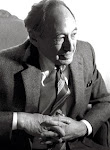Think about how you feel when you see the Earth from space or the Apollo astronauts walking on the moon. These images are achievements of science, sure, but they also have a religious feel to them; they tug at something deeper than engineering, something sublime. When viewed as a whole, space exploration has a lot in common with religion. It offers us a salvation narrative, for instance, whereby we put our faith in technology in order to be delivered to new worlds. Its priests, figures like Neil deGrasse Tyson, extoll its virtues in what sound like sermons. In its iconography, astronauts are like saints that ascend into heaven and extraterrestrials are like gods---benevolent, kind, wise, capable of manipulating space and time.
This idea of seeing space exploration as a religion has a long history, dating back to the Russians of the early twentieth century, many of whom self-identified as "Cosmists." From there it migrated to German rocket scientists like Werner von Braun, who took his ideas about space travel to America after the Second World War. Americans were slow to warm to space exploration. They saw it as a fantasy, but that changed as Americans began to regard technology with a new reverence in the postwar period. Today Americans are the most fervent Cosmists on the planet, even if manned space exploration seems to have stalled for the time being.
Albert Harrison, a professor of psychology at U.C. Davis, has been working on the psychology of space exploration since the 1970's, when he did research for NASA about the psychological effects of long-term space travel. Harrison was kind enough to send me a chapter of his forthcoming book about Cosmism, and the complex psychological motivations that underlie space exploration. What follows is our conversation about the past, present and future of space exploration as a religious quest.
The Atlantic
Subscribe to:
Post Comments (Atom)




No comments:
Post a Comment